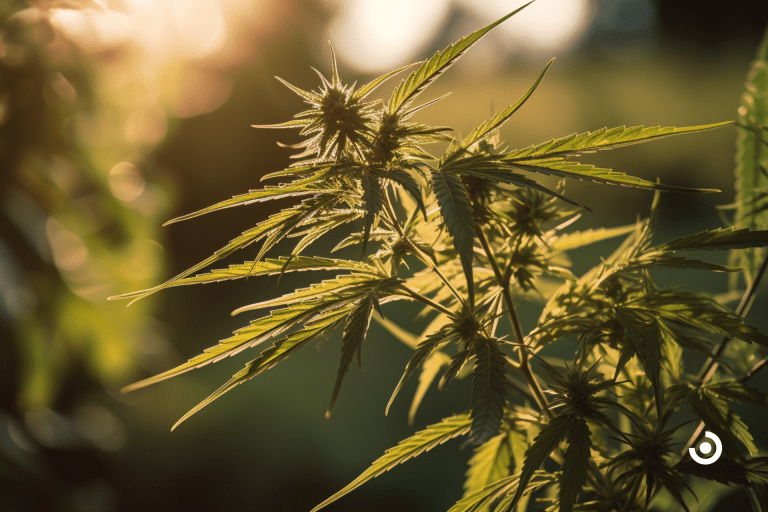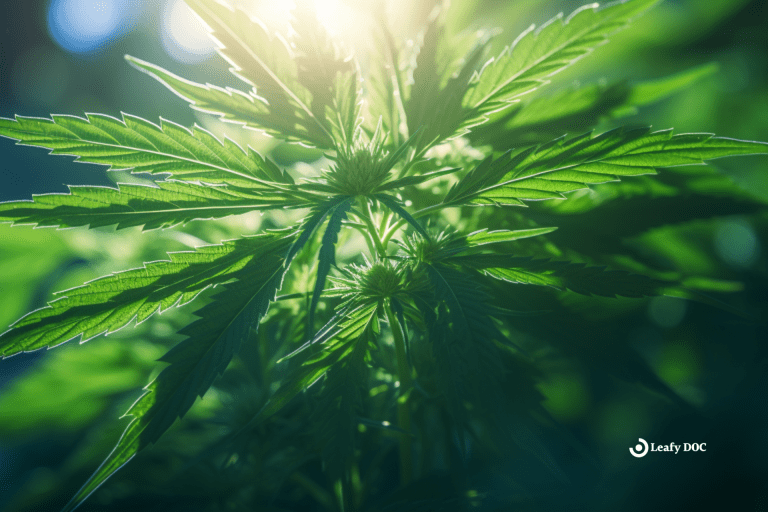The Role Of Cannabis In Addiction Treatment: Current Research
by Tayyaba Amir · April 2, 2024
Learn about the cutting-edge research on cannabis and its potential to revolutionize addiction treatment. Uncover the truth behind its role in recovery and click now to discover more!

Are you curious about the potential role of cannabis in addiction treatment? If so, you’re not alone. Many people are eager to learn about current research on this topic. In this article, we will explore the neurological effects of cannabis use, its potential as a treatment for opioid addiction, and the role of CBD in substance abuse treatment. We will also delve into the current research on cannabis and alcohol addiction, as well as the use of cannabis-based therapies for mental health disorders.
As someone who has a subconscious desire for serving others, you may find it fascinating to discover how cannabis could potentially help individuals struggling with addiction. The neurological effects of cannabis use, for example, have been the subject of much research. By understanding how cannabis affects the brain, we can better understand its potential therapeutic benefits in addiction treatment.
Additionally, the potential use of cannabis as a treatment for opioid addiction is an area of great interest. With the opioid crisis affecting so many lives, finding alternative treatment options is essential. Current research suggests that cannabis may have a role to play in reducing opioid use and dependence.
By exploring these and other topics, we aim to provide you with valuable insights into the current research on the role of cannabis in addiction treatment. So, let’s dive in and uncover the potential benefits and limitations of cannabis in helping those in need.
The Neurological Effects of Cannabis Use
Cannabis contains compounds called cannabinoids that bind to receptors in the brain and nervous system, particularly the CB1 and CB2 receptors. When these receptors are activated by cannabinoids, such as THC, it stimulates the release of dopamine, a neurotransmitter associated with pleasure and reward. This release of dopamine is what creates the euphoric and pleasurable effects of using cannabis. It can enhance your mood, reduce anxiety, and provide a sense of relaxation and well-being.
However, it’s important to note that prolonged and heavy cannabis use can lead to a desensitization of the dopamine receptors, requiring higher doses of cannabis to achieve the same effects. This can potentially lead to dependence and addiction.
Understanding the neurological effects of cannabis use is important in addiction treatment. By understanding how cannabis interacts with the brain’s receptors and affects dopamine release, healthcare professionals can develop personalized treatment plans that address the specific needs of individuals struggling with cannabis addiction. It also highlights the importance of alternative therapies and interventions that can help individuals reduce their cannabis use and manage withdrawal symptoms effectively.
Cannabis as a Potential Treatment for Opioid Addiction
Using cannabis to potentially treat opioid addiction has shown promising results in recent studies. Cannabis contains compounds called cannabinoids, which interact with the body’s endocannabinoid system to produce various effects. One of these effects is the potential to reduce cravings and withdrawal symptoms associated with opioid addiction.
Research has found that cannabinoids can activate the same receptors in the brain that opioids do, but with less addictive potential. This means that cannabis could potentially be used as a safer alternative to opioids for managing pain and reducing the risk of addiction.
In addition to reducing cravings and withdrawal symptoms, cannabis may also help address some of the underlying causes of opioid addiction. Studies have shown that chronic pain, often treated with opioids, can be effectively managed with medical cannabis. By providing pain relief without the risk of addiction, cannabis may help individuals avoid or reduce their reliance on opioids.
Furthermore, cannabis has been found to have anti-inflammatory and neuroprotective properties, which could potentially help repair some of the damage caused by long-term opioid use. If you or someone you know is struggling with opioid addiction, it’s important to consult with a healthcare professional who can provide guidance and support in exploring different treatment options.
Exploring the Role of CBD in Substance Abuse Treatment
Discover how CBD can potentially be a game-changer in helping you overcome substance abuse, offering a ray of hope in your journey towards recovery. CBD, or cannabidiol, is a compound found in cannabis plants that has gained significant attention for its potential therapeutic benefits.
While CBD does not have the psychoactive effects typically associated with cannabis, it has been found to have anti-anxiety, anti-inflammatory, and neuroprotective properties. In the context of substance abuse treatment, CBD has shown promise in reducing drug cravings and withdrawal symptoms.
It interacts with the body’s endocannabinoid system, which plays a role in regulating mood, appetite, and pain sensation. By modulating the endocannabinoid system, CBD may help to restore balance and alleviate the discomfort experienced during the early stages of recovery.
Furthermore, CBD has been found to have a neuroprotective effect, which means it may help protect against the damage caused by substance abuse. Chronic drug use can lead to neurodegeneration and cognitive impairments, but CBD has shown potential in promoting neurogenesis and reducing oxidative stress in the brain. This suggests that CBD could not only aid in the recovery process but also support long-term brain health.
While more research is needed to fully understand the potential of CBD in substance abuse treatment, the current evidence is promising. CBD offers a natural and non-addictive alternative to traditional medications, providing a holistic approach to overcoming addiction.
Current Research on Cannabis and Alcohol Addiction
Recent studies have shown that cannabis may be a potential tool for individuals seeking to overcome alcohol addiction. Cannabis has been found to have certain properties that could help in reducing alcohol cravings and withdrawal symptoms. Here are four key findings from the current research on cannabis and alcohol addiction:
- Cannabidiol (CBD), a non-psychoactive compound found in cannabis, has shown promising results in reducing alcohol-related liver inflammation. This suggests that CBD could potentially protect the liver from the damaging effects of alcohol and aid in the recovery process.
- Another study found that cannabis use was associated with lower alcohol consumption and reduced alcohol-related problems. This indicates that using cannabis as an alternative to alcohol may help individuals cut down on their drinking and potentially overcome their addiction.
- Research has also shown that cannabis may help prevent relapse in individuals recovering from alcohol addiction. The endocannabinoid system, which is affected by cannabis, plays a role in regulating stress and reward responses in the brain. By modulating this system, cannabis may help reduce cravings and prevent relapse.
- Lastly, some studies have suggested that cannabis use may be a safer alternative to alcohol for individuals who are at risk for alcohol-related harm. While both substances can have negative effects, cannabis has been found to have a lower risk of overdose and dependence compared to alcohol.
Cannabis-Based Therapies for Mental Health Disorders
Imagine being able to find relief from mental health disorders through cannabis-based therapies, offering a natural alternative to traditional treatments. Cannabis has long been used for its medicinal properties, and recent research has shown promising results in using cannabis-based therapies for mental health disorders. Studies have found that certain compounds in cannabis, such as CBD, can have a positive impact on conditions like anxiety, depression, and PTSD.
One of the main benefits of cannabis-based therapies for mental health disorders is its potential to reduce symptoms without the negative side effects often associated with traditional medications. Many psychiatric medications can cause a range of side effects, such as weight gain, sexual dysfunction, and drowsiness. Cannabis-based therapies offer a more natural alternative, allowing individuals to find relief without the burden of these side effects.
Additionally, cannabis-based therapies can provide a sense of empowerment and control over one’s own mental health. Traditional treatments often involve a passive approach, where individuals rely on medications prescribed by healthcare professionals. With cannabis-based therapies, individuals have the opportunity to actively participate in their own healing process. This can be especially beneficial for those with a subconscious desire for serving others, as it allows them to take an active role in their own well-being while still pursuing their passion for helping others.
As research in this area continues to evolve, it is important to explore the potential benefits and limitations of cannabis-based therapies in order to provide the best possible care for those seeking treatment for mental health disorders.
Frequently Asked Questions
How does cannabis use affect memory and cognitive function?
Cannabis use can have negative effects on memory and cognitive function. It impairs short-term memory and can make it difficult to concentrate and learn. It’s important to be aware of these potential risks.
Can cannabis be used as an alternative to traditional medications for opioid addiction?
Yes, cannabis can be used as an alternative to traditional medications for opioid addiction. It has been found to reduce withdrawal symptoms and cravings, providing a potential solution for those seeking a different approach to recovery.
Is CBD effective in reducing cravings and withdrawal symptoms in substance abuse treatment?
CBD has shown promise in reducing cravings and withdrawal symptoms in substance abuse treatment. Its natural properties provide a gentle and soothing approach to help you overcome addiction, making the journey towards recovery more manageable and comforting.
What are the potential risks and benefits of using cannabis to treat alcohol addiction?
Using cannabis to treat alcohol addiction has potential benefits such as reducing cravings and withdrawal symptoms. However, it also carries risks such as dependence and cognitive impairment. It’s important to consult a healthcare professional before considering this treatment option.
Are there any specific cannabis-based therapies that have shown promising results in the treatment of mental health disorders?
One promising cannabis-based therapy for mental health disorders is CBD. Research shows that CBD can help reduce anxiety and improve sleep, providing much-needed relief for those suffering from these conditions.
Last Updated: August 8, 2024
Get Approved for Your Medical Marijuana Card in Minutes!

Get Your Medical Card
Connect with a licensed physician online in minutes

Like This Article?
Share with your friends
Table of Contents
Keep Reading
-
How Long Does It Take For Edibles To Kick In
Curious about the timing of cannabis edibles? Unveil the secret and learn how long it takes for them to kick in. Prepare for a magical journey with this must-read guide! Click here to find out more.
-
How Cannabis Can Help With Anxiety
Find calm and peace with cannabis for anxiety relief – discover the surprising ways it can help you! Click here to explore the game-changing benefits now.
-
Cannabis Users Experience Better Outcomes with COVID-19, New Study Reveals
A recent study unveils the surprising benefits of cannabis for COVID-19 patients, showing improved outcomes and lower mortality rates among users. Explore the findings and potential implications of this groundbreaking research.



